This weird indie turns questioning your faith into a weirdly wonderful playable experience
Indie Spotlight | Indika is a joyously creative and unusual exploration of some pretty deep themes
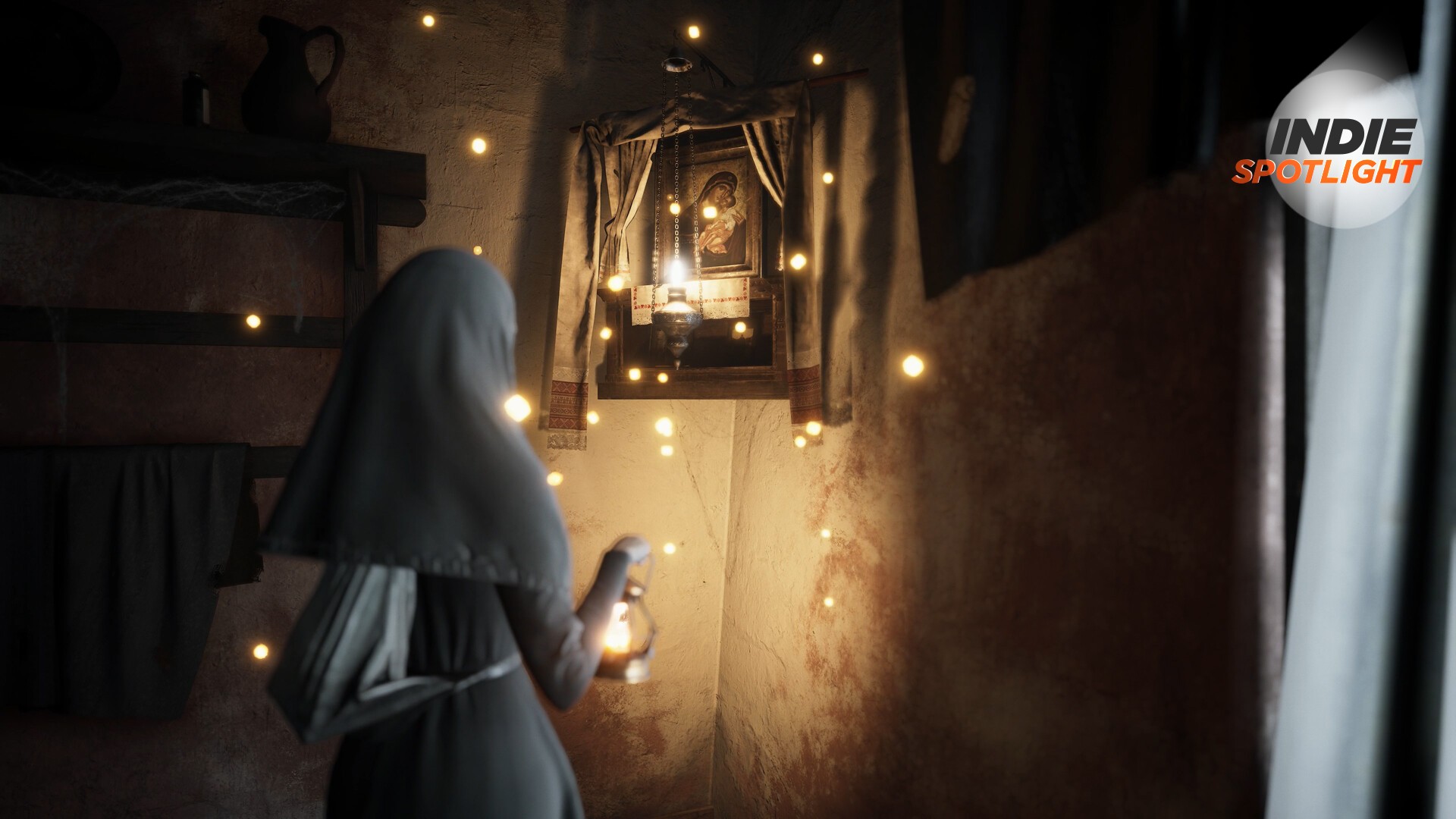
The 'wait, what?' count is high in Indika. It's bizarre in the best way; flinging genres flips, surrealism and fourth wall breaks around without a care in the world as it dismantles organized religion and questions faith as a whole…. wait, comeback. You don't have to worry about the themes, or the fact that the main hero is an almost certainly schizophrenic early 19th-century Russian nun. What's important is that this is a constantly creative, and always surprising game, littered with moments you'll remember for a long time.
In God we sort of trust
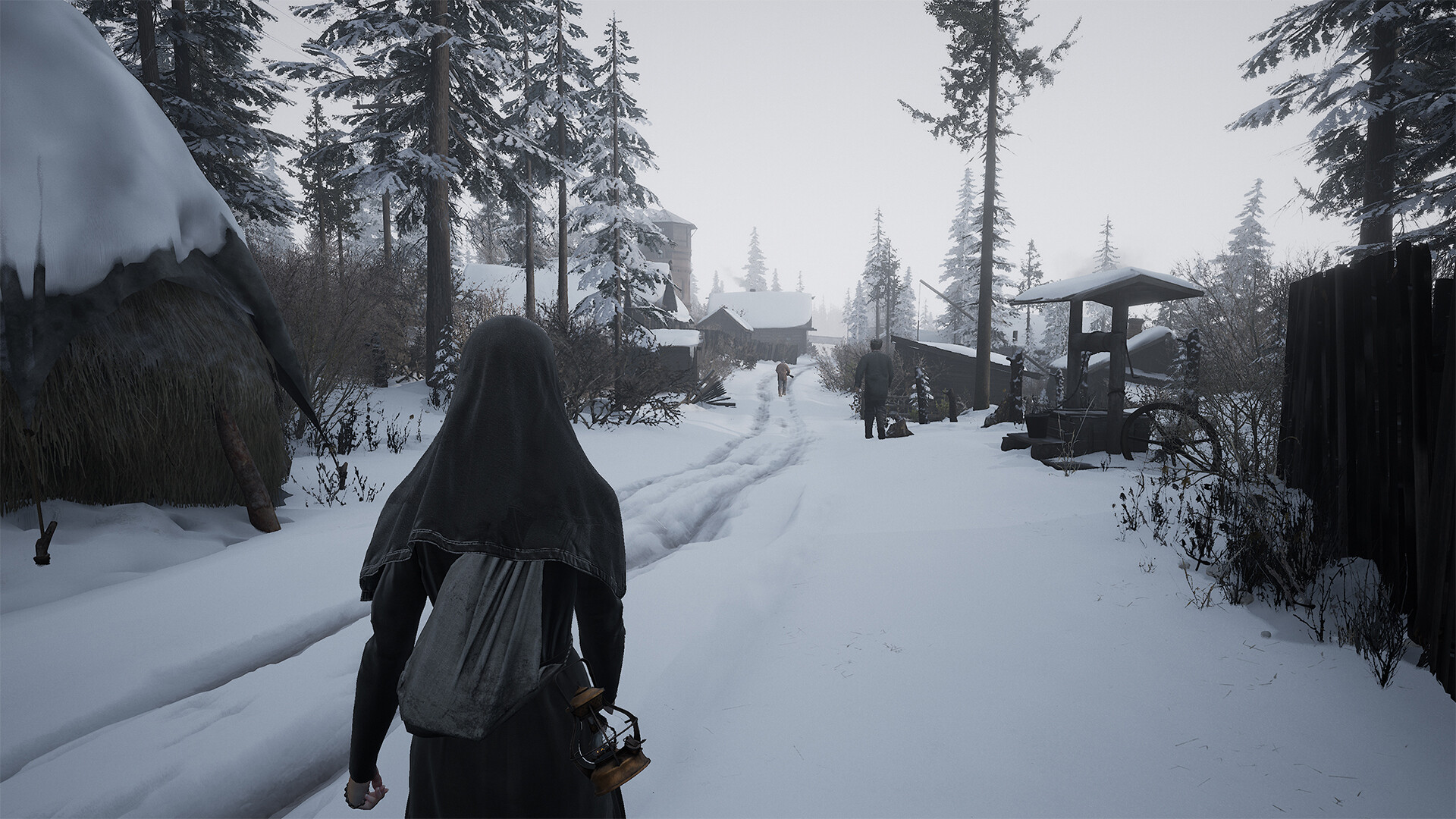
Things start off fairly gently, establishing Indika's pious life as a deeply unpopular nun, living a life of grinding servitude in a monastery. It's never entirely clear why no one likes her as she carries buckets of potatoes around or collects water, but she's shunned and alone despite her diligence. Well, not quite alone - there is the voice in her head. Initially, it sounds like a narrator, filling you in as you play, but it quickly becomes clear Indika can hear it too, interrupting and arguing with its ideas and takes on events.
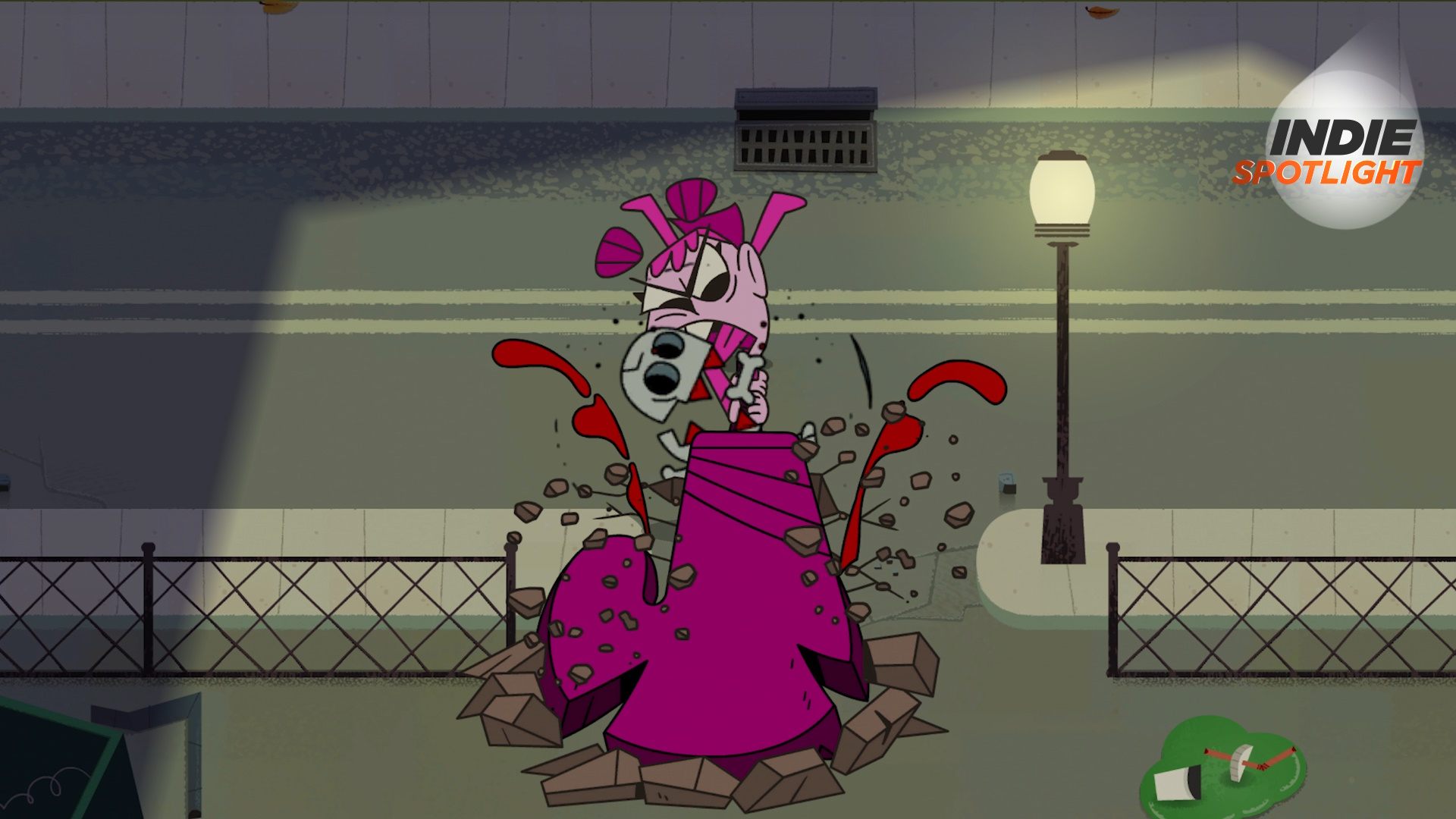
For a game that's all about testing the main character's faith, it's fitting that it uses gameplay to make you feel this as a player. One of your first objectives is to collect five buckets of water; a task so tediously broken down that you can't actually believe it's going to make you do all five as you walk to the well, crank the handle, fill the bucket, carry it back to a barrel and repeat. "Useless labor is the basis of spiritual development" the voice intones as you complete buckets one and two, assuming at some point the game will cut away and save you from buckets three four and five.
It doesn't. But, thanks to a strange point system introduced moments earlier, I actually found myself chasing the rewarding little digital pings of the numbers going up. When a mean old nun tips the barrel out at the end, pouring away all the water, all I could think, in a quiet little voice to myself, was 'but my points'. There's a nonsensical upgrade path where you can trade them in - sometimes from doing obvious things, sometimes for no clear reason - and progress a tree of options. These include things like 'Grief - every time you get points, you gain the chance to get a 1.46 multiplier', or 'Humility - get the chance to gain 120 points right now'.
On point
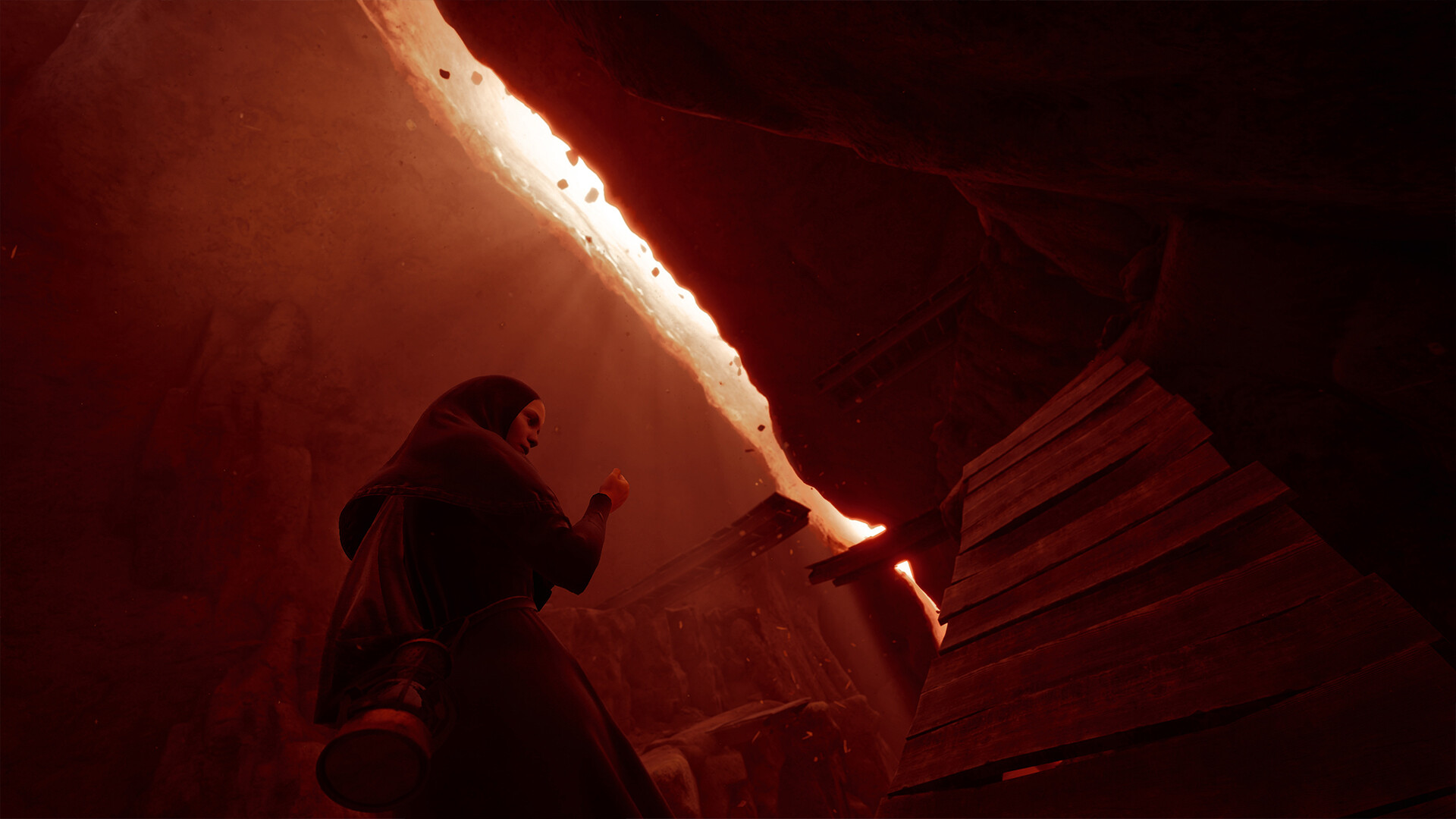
What are these points? What are they for? It's never really explained, and the game even tells you they're worthless, but the compulsion it creates to try and get more remains and underpins Indika's themes. Indika, the nun, is deeply troubled and lost, desperately laying all her problems on her religion's shoulders and this quest for points simply voices her desperate need for approval, no matter how vapid.
As the story progresses, and her faith provides fewer and fewer answers, things start to unravel. Her world literally starts to crack and come apart, with only the power of prayer holding things together - red tinged sections see the voice run amok, expressing how she really feels about her life deep down (hates it) while levels fracture and move around. Holding a button makes Indika pray, blocking out the voice's truths and putting things back. Weird as it sounds, this mechanic then lets you solve puzzles as you break and repair the world to reach new areas and move on..
Much of Indika's strangeness revolves around this idea of using game mechanics to make her inner turmoil a playable process for you to go through. The endless chasing of points never seems to actually do anything, but it might? The world literally comes apart without mindless devotion and prayer. All while the voice in her head, the Devil/inner monologue, constantly taunts her with the truth she's so desperate to avoid.
Sign up to the GamesRadar+ Newsletter
Weekly digests, tales from the communities you love, and more
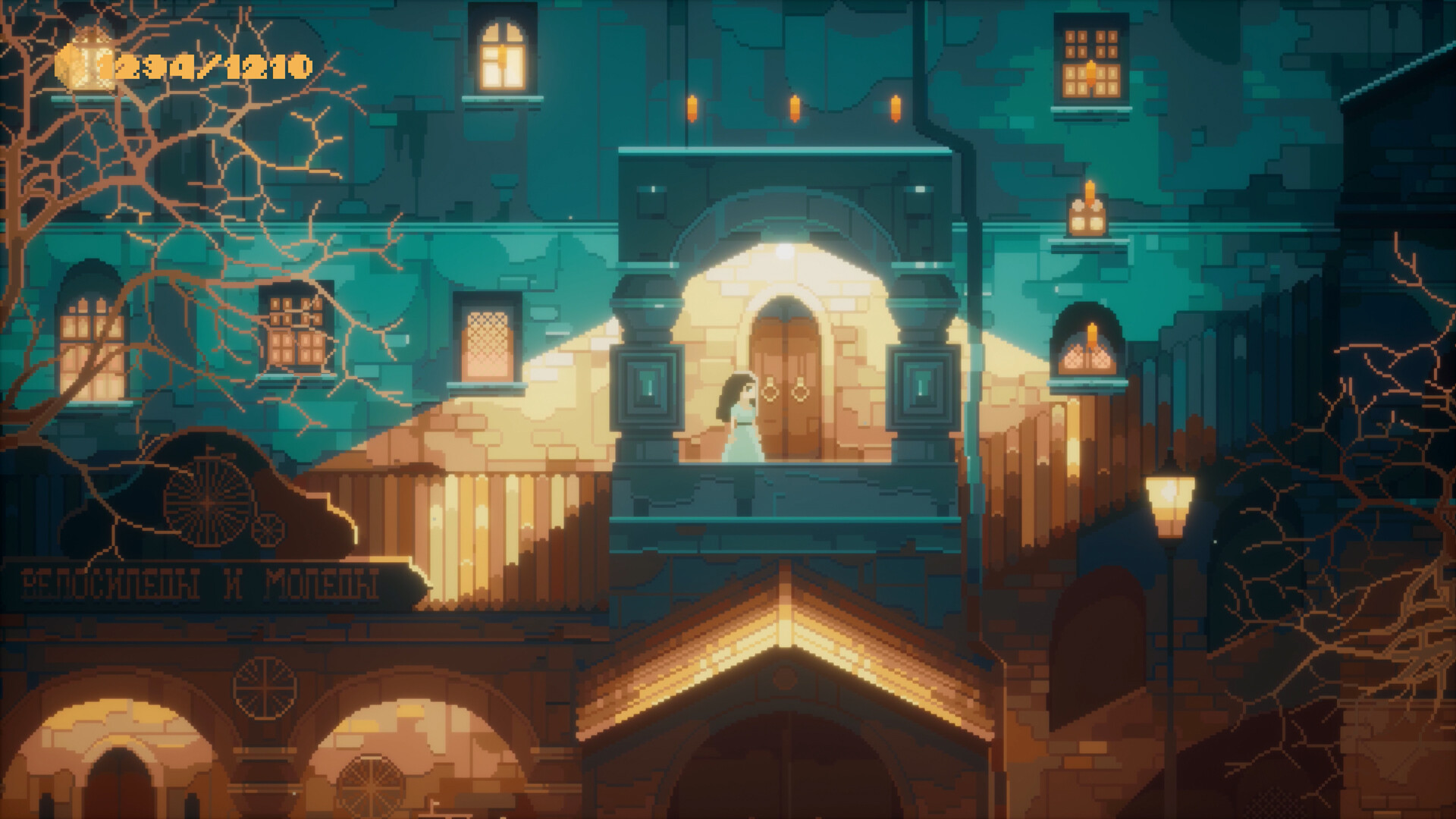
I don't want to spoil the story's finer details, but Indika eventually meets an injured prisoner on the run, and sets off with him to find a religious artefact called the Kudets they both believe will fix everything. Which is when the real strangeness starts. Beautifully drawn pixel art flashbacks fill out Indika's backstory and past life, for example, with chases and musical puzzles. An impossibly large, shaggy black dog pursues the two for a stretch, manifesting a popular folklore bad omen. And the world distorts into impossible shapes and scales to create puzzles full of twisting industrial gantries, corridors, staircases, and even giant fish dwarfing you as you explore.
One stand out puzzle sees a room turned into some sort of internal Rubix Cube, made up of identical linked compartments you can see repeating - the only difference is where the 'floor' is as you move between them, making use of the walls, floor and ceiling to move crates around to reach an exit. It's a Portal level geometry warping brain ache to get through.
Difficult issues
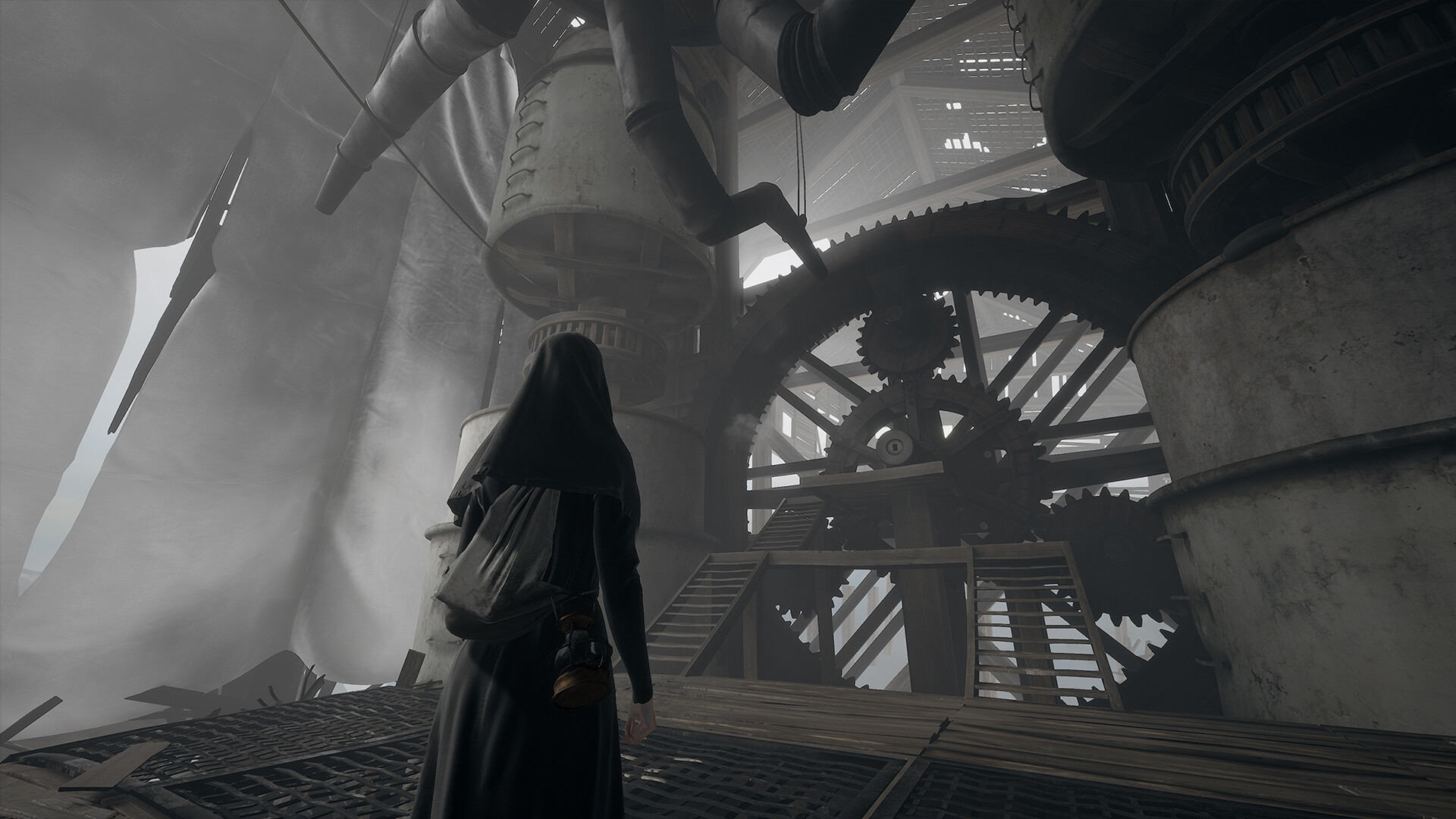
You're unlikely to play anything as creatively weird as this for a long time to come.
It's a game full of difficult topics. There's an attempted sexual assault early on you should probably be aware of. Indika, the person, spends the entirety of Indika, the game, struggling with her mental health. It's an incredibly clever game though, using its mechanics and ideas to visualize this struggle and journey, framing things with a vocabulary familiar to countless games to articulate processes and events. From point collecting to visual perspectives, it feels like little is done here without a point. Almost in a direct counter to Indika's fruitless search for meaning in the story, everything the mechanics do in the gameplay does happen for a reason.
When developers like Naughty Dog obsess over minimal UIs or trying to create frictionless connections between players and story, it's fascinating to experience something like Indika; which revels in using big chunky, impossible to miss mechanics to express its themes. It articulates and underlines the issues involved in a way that just explaining or watching them couldn't do. I originally hated the ending, although I won't spoil why, but now, with a little distance and perspective, I've reappraised my opinion. The more I think about it, the more the conclusion is just another expression of this.
You're unlikely to play anything as creatively weird as this for a long time to come. But, most importantly, it uses that weirdness. Nothing here is batshit wft crazy without a reason and it's a really interesting way of expressing a story I'd now struggle to see told any other way.
Indika is out now on PC, Xbox Series X/S, and PS5. To see what other indie gems we've been enjoying so far, head on over to our Indie Spotlight series.

I'm GamesRadar's Managing Editor for guides, which means I run GamesRadar's guides and tips content. I also write reviews, previews and features, largely about horror, action adventure, FPS and open world games. I previously worked on Kotaku, and the Official PlayStation Magazine and website.


